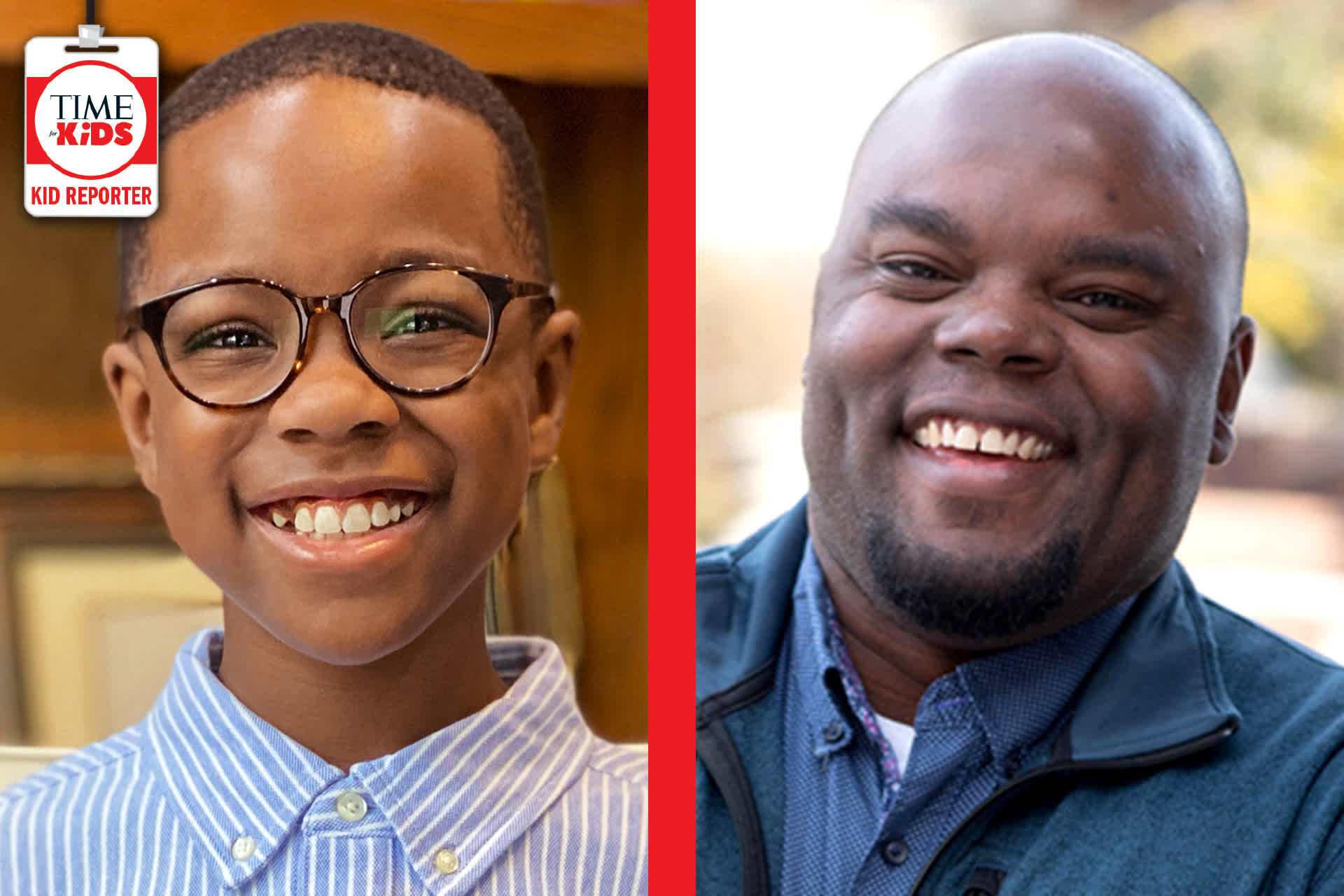My Chat with Kwame Mbalia

Orion Jean is a TFK Kid Reporter. He was named the 2021 TIME Kid of the Year. Here, he writes about his conversation with one of his favorite authors, Kwame Mbalia.
Have you ever considered what it would be like if you were responsible for creating stories in which characters embark on life-changing adventures? Personally, I’ve always been curious about the process of writing those stories. So in July 2022, I sat down to video chat with New York Times best-selling author Kwame Mbalia. He wrote the Tristan Strong trilogy and helped write the Last Gate of the Emperor series. We talked about what a day in the life of a writer looks like, and he shared his advice for future authors.
Mbalia says that his love for reading and writing comes from his mother, who was a professor and author. “She would go and put [my younger brother] down for a nap,” he told me. “Then she would tell me and my [other] brother, ‘Listen, y'all can nap too, or you can read a book.’” Mbalia was inspired by authors such as J.R.R. Tolkien, Rick Riordan, and Walter Dean Myers.
You may be surprised to know that until recently, Mbalia had a career as a pharmaceutical metrologist. (That’s someone who makes sure the equipment used to produce medicine is working properly.) Then, in 2019, he released his middle-grade debut, Tristan Strong Punches a Hole in the Sky. It received a Coretta Scott King Author Honor.
Mbalia also talked about the hardest part of being an author: It’s easy to get frustrated and discouraged while comparing your unfinished work to someone else’s published work. “You have to realize that [theirs] is a finished product,” Mbalia says. “That is a book that has gone through multiple rounds of revision. . . . You flip through that finished book and think, ‘This is amazing,’ when in reality, at some point, that author considered it trash.”
Mbalia encourages children who enjoy reading and who might want to become authors to “trust the process. Find out whatever process works for you, and go for it,” he says.
Mbalia writes often and whenever he can, “because you never know when inspiration will hit. I have the Notes app on my phone,” he says. “I have legal pads. I have sticky notes that I stick everywhere, and then I’ll pull them all and try to make sense of them.”
Sometimes, he adds, he’ll “wake up in the middle of the night with a thought” and he’ll “run to the computer and type it up.”
There’s so much more to the creative process than someone might think. All movies, TV shows, books, and video games—and even this article—go through numerous versions before the final draft is sent out to the public. It sounds like writing a book can be messy, exhausting, and unconventional. But that’s just it! Being an author is about the freedom to tell any story you want, any way you want.
So if you’ve ever thought about becoming an author, just think about what Mbalia said in the last few minutes of our interview: “Everyone isn’t going to love every story, but I do believe that there is a story for everyone.” Who knows? Maybe you can write a story that inspires and resonates with the next generation of readers and writers around the world.

